Ghosts Don’t Burn
By Kin Yunn Ho
Review of A Tinderbox in Three Acts by Cynthia Dewi Oka (USA: BOA Editions, 2022)
Sim Chi Yin - The Suitcase Is A Little Bit Rotten (2023) (and resp. The Mountain That Hid, 2022), Installation view, Double Exposure, Camera Austria. Photo: Markus Krottendorfer.
Courtesy: the artist & gallery Zilberman, Istanbul / Berlin / Miami.
Image description: Three art installations are exhibited in a gallery space. On the right of the image, two televisions placed side by side display images. The television on the left depicts a tunnel looking out into greenery, and the television on the right depicts a ladder leaning against a wall. To the left of the televisions, wooden cases arranged on a tall table display photographs. In the background, a flesh-colored image hangs on a white wall.
I was in Lisbon when I first opened Cynthia Dewi Oka’s A Tinderbox in Three Acts. This isn’t relevant to the book’s subject matter, but being in 20°C weather, sitting idly in a jardim and speaking to self-exiled Russian immigrants while backdropped by new year fireworks, I was somehow filled with trepidation and guilt by the thought of engaging with this incendiary work. Oka’s unflinching fourth collection comprises three acts of visual and textual expressions, poetic reactions to the mass slaughter and violence against members of the Communist Party of Indonesia by the Suharto-controlled Indonesian Army between 1965-66. Born from a “heat of simultaneity,” it is both apologetic and accusatory, and invites readers to look both inward and beyond themselves. It offers a difficult but necessary path toward absolution for all sides.
To engage with Oka’s poetics is to confront one’s own privilege and agency. Since she migrated from postcolonial Indonesia to the “colonial settler states” of Canada and America, Oka’s personal stakes in stirring the “heart of empire” are palpable. In her hands, the issue of who identifies under the umbrella of empire becomes both question and reflection. An info dump providing historical context precedes the first poem, ‘Apologia’, which itself precedes the ‘Three Acts’ structure and establishes Oka’s unease with the disparity between idealised advocacy and more pressing practicality: “wasting good cloth on banners that kept nobody warm. I made shells of unstable electricity”. There is a price to pay for her activism, which is borne by the very victims she interrogates. In this, the poem lays down the foundations of guilt and trauma that permeate the rest of the collection.
Oka then introduces her cast, who offer fragmented views on the incident; as “Ghosts,” they are imagined and ungovernable and lacking agency to find “rest,” but Oka gives them ample voice, conveying their restlessness onto the very mediums once used to communicate their sentences. Hers comes close to being retributionist activism, but Tinderbox maintains its status as a poetry collection in that Oka delivers its telegrams, interviews, transcriptions, and various other bureaucratic communications in the manner of poetry, thereby christening the messages of resistance and calls for restitution with flair and keeping in tone with the rest of her bold, exacting collection.
Unfortunately for some, Tinderbox’s willingness to discomfit may prove a little much. There may be swaths of text that go over the reader’s head, especially if the reader is not familiar with the 1965-66 killings. The untitled telegrams recurring throughout the collection persistently blend and twist poetry and propaganda; this inevitably hinders comprehension by non-stakeholders, or anyone who isn’t in a receptive mood. Much of the “scripted” discord between Oka’s different actors, even in the form of direct inquiry or “interview”, starts off in one direction but diverges into multiple tangents, mirroring the ongoing shuffling and avoidance of blame that impedes resolution. This reluctance (or indifference) toward adhering to narrative coherence is thus reflective of the senseless, sometimes perplexing ordeals that victims of the massacre continue to experience today. To Oka, such narrative clarity “mitigates risk,” the kind that illuminates the safety (or danger) of circular ignorance. She thus makes it clear that Tinderbox yearns for resolution, not for a feedback loop.
Truth is also mirrored in the recently declassified documents uncovering evidence of Britain’s involvement in the massacres, including the use of “incendiary newsletters and radio broadcasts” to call for the Partai Komunis Indonesia (PKI) and all other communist organisations to “be eliminated.” As the UK continues to deny involvement despite the reporting of these declassified documents in Western publications such as The Guardian and The Observer, Oka’s use of interrogatory and government broadcast formats to achieve some semblance of resolution inevitably takes on a ‘last-resort’ nature, in which she is forced to employ the government’s own documents against it. She begins ‘Act One’ by laying down the “rules of the interrogation,” calling out the fallacies of such a means of procuring information: “there is no direct correlation between what you reveal and what is recorded”. Likewise, “there is no direct correlation between what you speak and what you reveal”. These are reminders to her readers that the exchanges may not go the way they expect and that truths don’t always beget truths—which also implies that lies sometimes do. Oka redacts the word “SECRET” throughout her collection, which untethers her interrogations from covertness and from the aggravating anonymity that continues to hinder resolution. In doing so, these ‘Ghosts’ become Oka’s heteronyms. They are derived from a shared algorithm, existing in ‘dynamic tension with one another’ to work, uneasily, towards some conclusive state of rest.
Consider, for example, the following multidirectional exchange:
IMAN: Was the funeral not satisfactory?
HWI SIANG: I never had a funeral.
IMAN: That’s right, I forgot.
HWI SIANG: You fled.
SATRIA: You lacked the stomach.
JAYA: NO ONE HA HA
HAD STOMACHS LEFT
BUDI: Is that an apology?
JAYA: OH PLEASE
If the commies had succeeded I
would have been THE CHICKEN
DEWI: All ifs are made of feathers.
NONIK: I am imagining you to prove it is still possible
to imagine –
IMAN: But not necessary.
SATRIA: What an English-speaking thing to do.
NONIK: - this conversation.
Oka’s conjured cast spar both overtly and subtextually. Even without context, one can guess each actor’s standing (though Oka is kind enough to provide these labels herself): Hwi Siang (Oka’s Chinese name) is a victim of the massacre; Iman a deserter; Satria a “nationalist political prisoner” under Sukarno’s PKI-influenced rule; Jaya a “civilian participant” in the killings; Dewi the detached patron goddess; and Nonik, “a desire made of anti-historical matter,” potentially Oka’s alias-cum-devil’s advocate within the narrative. They represent Oka’s haphazard lines of inquiry into not just the massacre’s perpetrators, or those “guilty” of fleeing, but also those at the blunt end of trauma. Oka’s use of bureaucratic communications as poetic media oxymoronically conveys this multi-textured nature of Indonesia’s political history.
The conversation carries on a bit before concluding:
JAYA: It was NECESSARY
to pluck THE INFECTED STEMS to REPLACE
their SHAKING with wires
NONIK: You mean wishes.
SATRIA: All I ever wished for was my own country.
BUDI: And what does a country of sleeping
volcanoes
wish for?
“A country of sleeping / volcanoes” indicates not just the ignitable nature of the people’s collective resentment, but the disastrous immensity of the power behind it. And yet, questioning what they “wish for” puts the onus of peace back on the wronged and resentful. Instead of asking whether the wronged have a right to resent, Oka pushes us to ask in what capacity, and in which direction, the wronged should be wielding this resentment. And perhaps more importantly, Oka encourages us to ask: will there be collateral damage?
Throughout the collection are other such episodes that express the collective remorse of those implicated in the massacre. Consider the first three lines from one of the more “conventional” poems in the collection, ‘Flora and Fauna: Lubang Buaya, October 1, 1965’:
My whole life the sky a flamingo making sins in a bucket.
Ibu crying when she cut into the shallow onions, I admire the decisive, she said.
Anyone believing anything not born rakshasa.
Notice the unpunctuated list of noun forms preceding the verb phrase “making sins”, denoting a collective transgression, with “bucket” likely symbolising the Lubang Buaya, or crocodile pit, the well into which Sukarno had seven Indonesian military officers thrown. This event became the catalyst for the “mass purge” of actual or suspected PKI members and sympathizers. In their varying agencies, and to varying degrees, these actors implicate and contest guilt. They steer the conversations in Godotian fashion in an involuntarily prolonged wash cycle that resurfaces and resubmerges their collective trauma. But even if symbiosis seems inconceivable, what better way to express, and to deal with, one’s own dissonances than by giving voice to a multiplicity of voices?
Like the Portuguese writer Fernando Pessoa, whose heteronyms sometimes contradict and are sometimes extraneous to one another, Oka’s ‘ghosts’ intersect and diverge across space, time, and political lines. But all must collectively endure the trauma born from decades of repudiation.
Sim Chi Yin - The Suitcase Is A Little Bit Rotten (2023) (and resp. The Mountain That Hid, 2022), Installation view, Double Exposure, Camera Austria. Photo: Markus Krottendorfer.
Courtesy: the artist & gallery Zilberman, Istanbul / Berlin / Miami.
Image description: Two wooden cases, propped up with gold hinges, are arranged side by side. Each has a photograph displayed against a dark background on a glass slide. The case on the left displays a photograph with a crowd of people, some holding traditional umbrellas. The case on the right displays a black-and-white photograph with a horizontal line running through it.
:::
Tinderbox’s language burns ‘the heart of empire’, but Oka reminds us that language also shames, limits, and shackles. Since Oka moved to the West, English has become a double-edged sword. It is the language she has received from the West and the language she uses to speak against it. But a weapon is a weapon in the end. Commenting on the West’s combined denial of human-rights violations, Oka relents as she understands that “the hole is bigger than any language, but it is the condition that makes language necessary.” Regardless of when and how it was acquired, language is necessary to her textual acts of defiance. And yet, Oka addresses her own Chinese name, “having never been written down through the years of banned language, then abandoned, whose meaning is unknown.” Placing this necessity of language next to the unknown suggests that the way we parse meaning matters but that our interpretations might defy expectations. A language owned may piggyback on certain notions of power, but language itself will never own anyone, just as those who speak it can never dictate the conclusions you come to.
Even so, unshrouding a piece of history inevitably means illuminating those who have played a part in it. The last line of ‘Act Three’ reads:
If we do not stray,
who—
With “who” left open-ended in both action and identification, a quote from Oka’s Foreword to the collection comes back into mind: “When why does not appear, we are held in thrall.” Yet throughout the collection, Oka doesn’t seem to be seeking reasons as much as an admission. In her final poetic monologue, Nonik states assertively:
… Forgive
none who has not asked
for forgiveness.
This seems to comprise part of Oka’s entreaty: that as long as the West—and any other party yet to admit complicity in the genocide—denies culpability, forgiveness cannot flow. Such a cathartic scenario would seem to unlock the chain keeping those left in “the long wake” from journeying “toward other mysteries,” but Oka’s intersecting formulations of guilt throughout the collection suggest a more fragmented truth.
Ultimately, these truths burden my engagement with her text. In Singapore, our fountains of wealth are built upon the ruins of oppressed figures. In 1963, an Internal Security Council comprising British, Singaporean, and Malayan governmental representatives detained 113 people without trial for their suspected involvement in communist activities, which were thought to undermine national security and to hinder Singapore’s merger with Malaysia, then known as Malaya. Britain favored the merger because it was concerned that Singapore would otherwise become an “independent, predominantly Chinese polity.” Imperialist shadow-orchestrations aside, such McCarthyist justifications are the subject of Oka’s ire. The civilian Jaya, in defending their participation in the massacre, asserts that “FEAR is NOT A FEELING it is a / PRESSURIZING MACHINE,” rationalising their actions as a product of mechanical forces, lending credence to but also spitting in the face of Oka’s inquiries into “the worth of a human life, or more precisely, what makes a life human.”
Meanwhile, my life subsists on capitalist machinations. I work, I buy stuff, I travel, I write essays bearing no practical assistance to anybody. As someone who has benefited from Singapore’s quelling of communism at the expense of those unjustly detained, I can’t help but feel discomfited by Oka’s text, but only for a moment, till my free-market cycle repeats itself.
Complicity thus seems a more complex notion than merely asking who wielded the parang. Outwardly, where we fall in this Venn diagram of blame, in which the different circles demarcate one’s allegiances during the genocide of 1965-66, clearly matters. Inwardly, Oka seems to suggest that it matters less than one may care to argue. But she does not mean to belittle the suffering of the victims. Rather, it is when we step outside these demarcations, as when astronauts leave earth ‘to know earth, how alone and woven / we are,’ that we are able to comprehend the cyclical nature of our world. Oka reiterates that ‘the circle is a cruel shape.’ To un-circle these narratives is to reach out, to leave the safety of perpetual anonymity and to enact recompense. Stepping forward and identifying yourself is the first step.
Alas, many of those implicated in injustice remain off the register. Many are still unaccounted for, and many are shunning accountability. All are stuck, as “impossibly” as a bird in the air. Satria mistakenly believes a bird “does not fly against the wind”. In fact, birds do: I've seen them hovering, suspended in a pocket of space, perspective on standstill and scenery unchanging around them.
Sim Chi Yin - The Suitcase Is A Little Bit Rotten (2023) (and resp. The Mountain That Hid, 2022), Installation view, Double Exposure, Camera Austria. Photo: Anna Voswinckel.
Courtesy: the artist & gallery Zilberman, Istanbul / Berlin / Miami.
Image description: In a gallery space, three wooden cases are displayed side by side on a table. Each holds a glass slide that displays a photograph. The photograph in the middle wooden case depicts tall, tropical trees.
Ho Kin Yunn is a Singaporean writer. His work has appeared in Food Republic, The Second Link, and Fieldfare Press, among others. Reach out to him at kinyunn@gmail.com
*
Sim Chi Yin (b.1978, Singapore) is an artist whose research-based practice uses artistic and archival interventions to contest and complicate historiographies and colonial narratives. She works across photography, film, installation, performance and book-making. She is participating in the 60th Venice Biennale (2024) and has exhibited at the Gropius Bau, Berlin (2023); the Barbican, London (2023); Harvard Art Museums, Boston, USA (2021); Les Rencontres d’Arles, France (2021); Nobel Peace Museum, Oslo (2017), Arko Art Centre, Seoul (2016); Zilberman Gallery Berlin (2021); Hanart TZ Gallery, Hong Kong (2019). She has also participated in the Istanbul Biennale (2022, 2017) and the Guangzhou Image Triennial ( 2021). Her work is in the collections of Harvard Art Museums, The J. Paul Getty Museum, M+ Hong Kong, Singapore Art Museum, and the National Museum Singapore. She was an artist fellow in the Whitney Museum’s Independent Study Program (2022-3) and is completing a PhD at King’s College London.
If you’ve enjoyed reading this article, please consider making a donation. Your donation goes towards paying our contributors and a modest stipend to our editors. Singapore Unbound is powered by volunteers, and we depend on individual supporters. To maintain our independence, we do not seek or accept direct funding from any government.

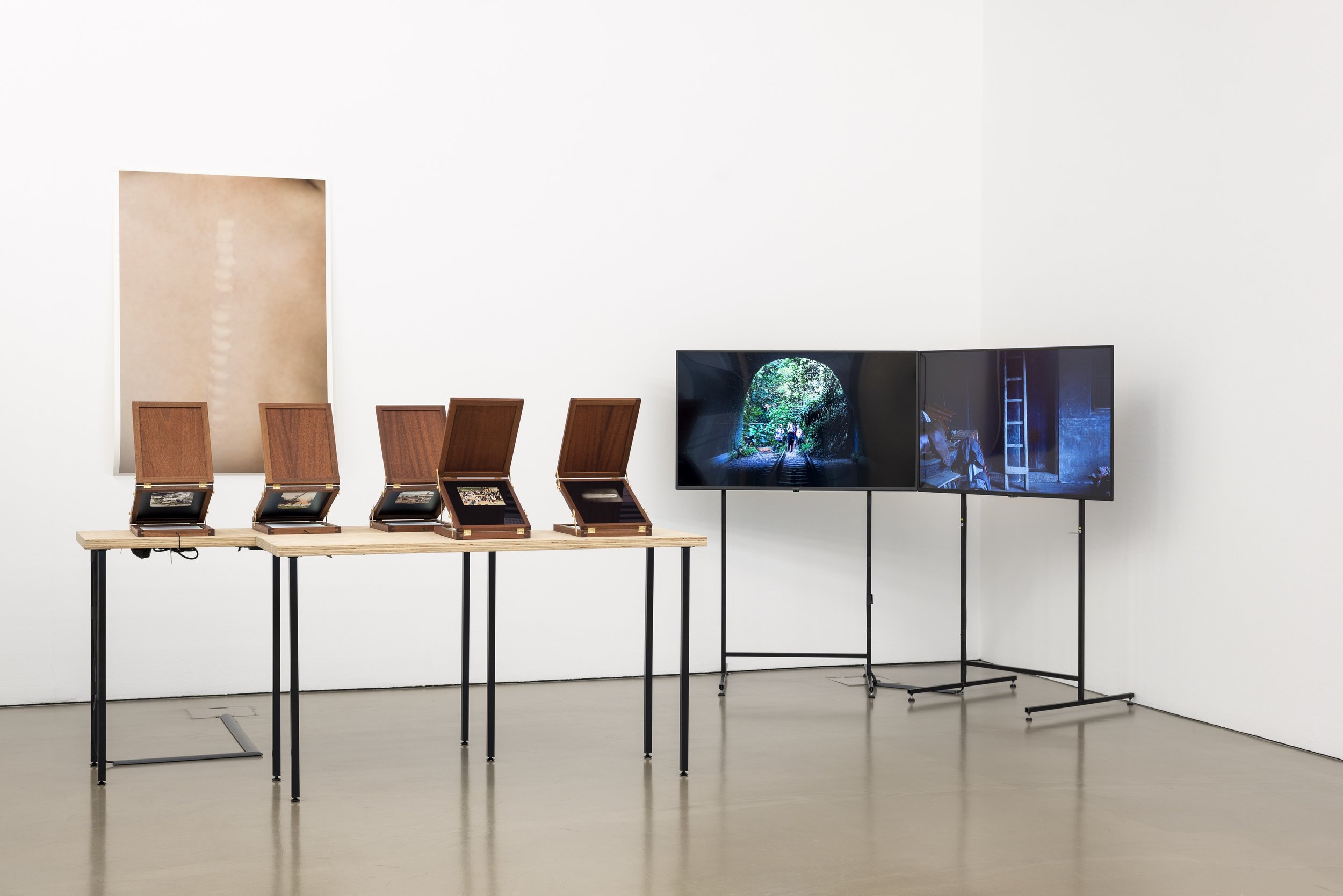
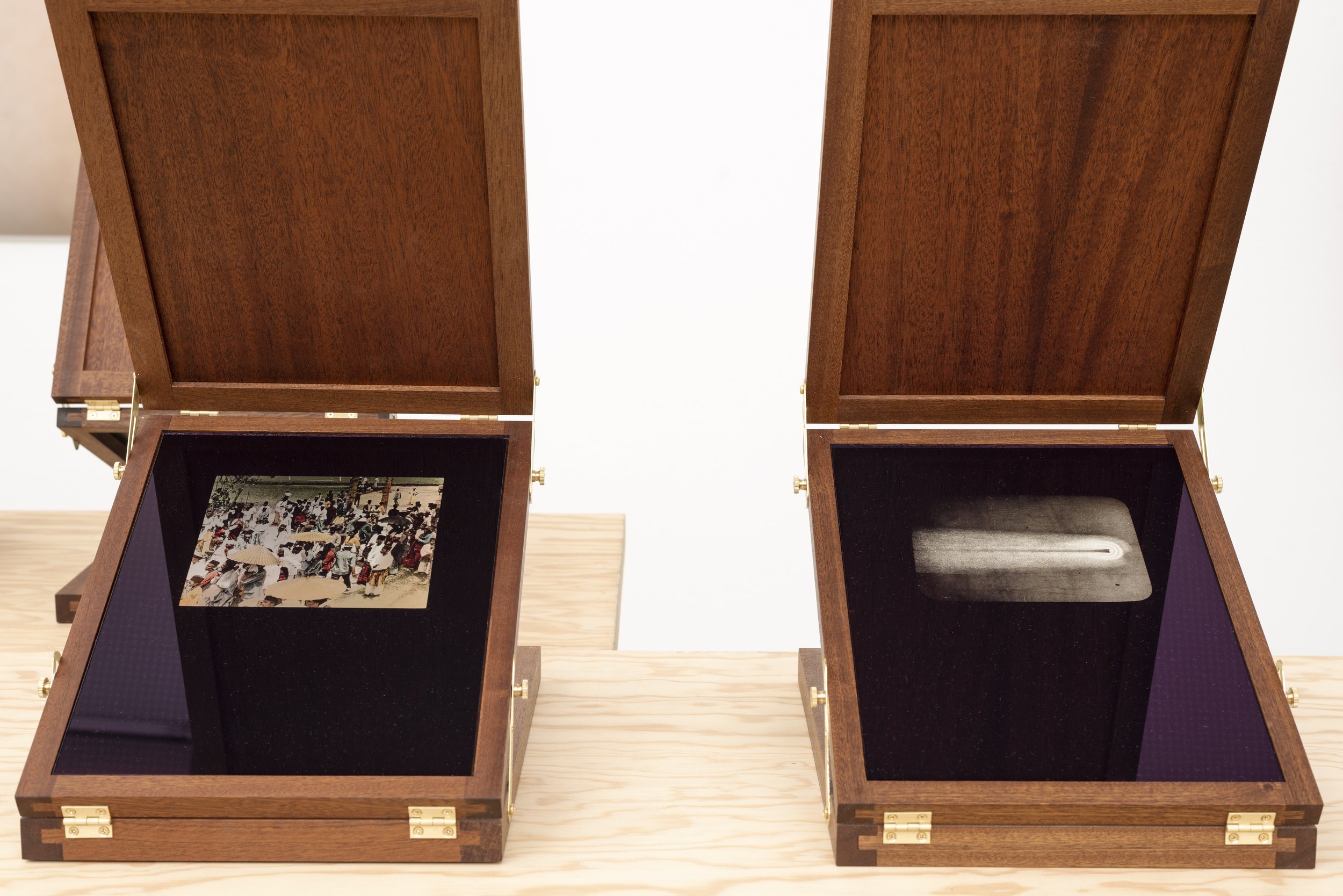
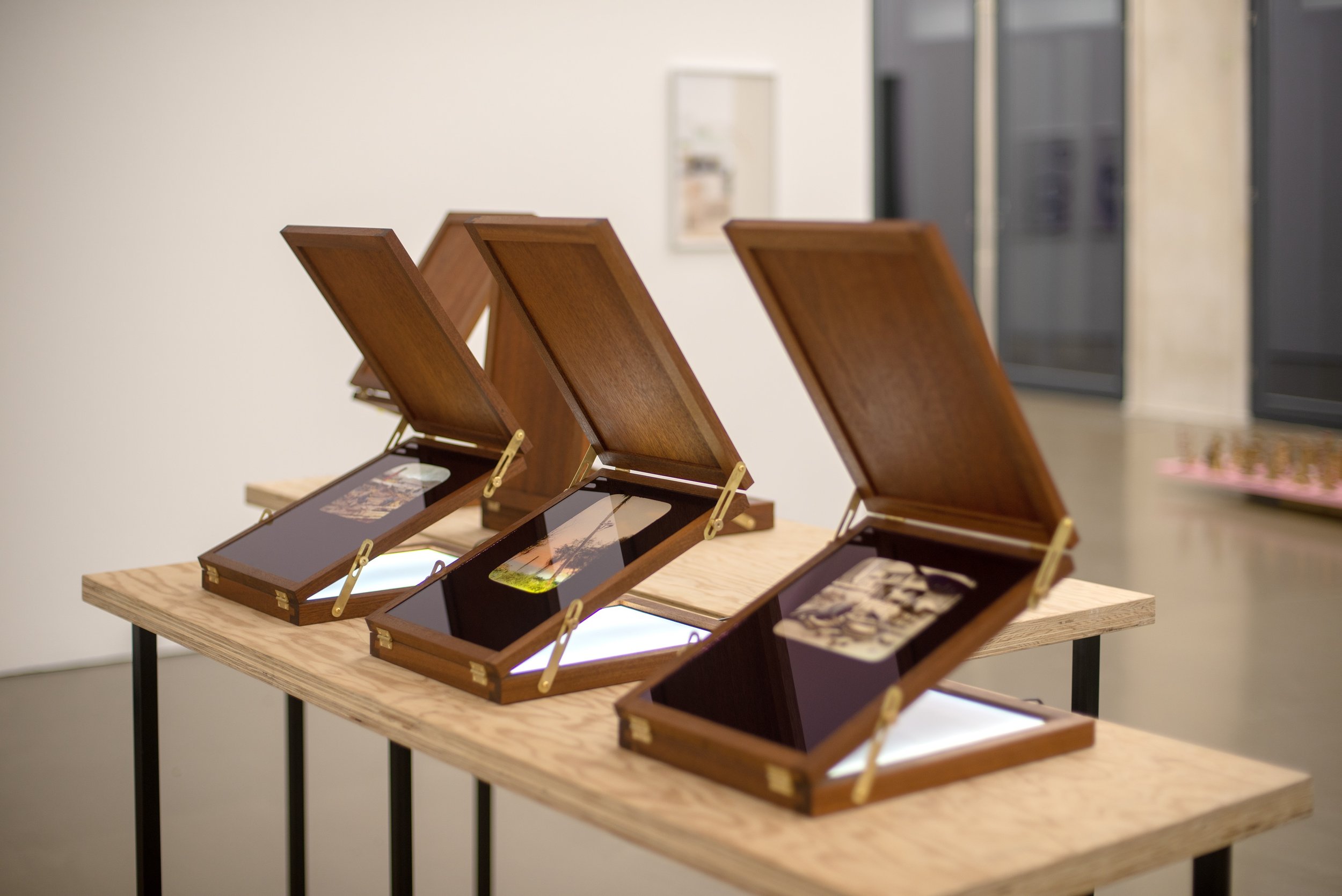



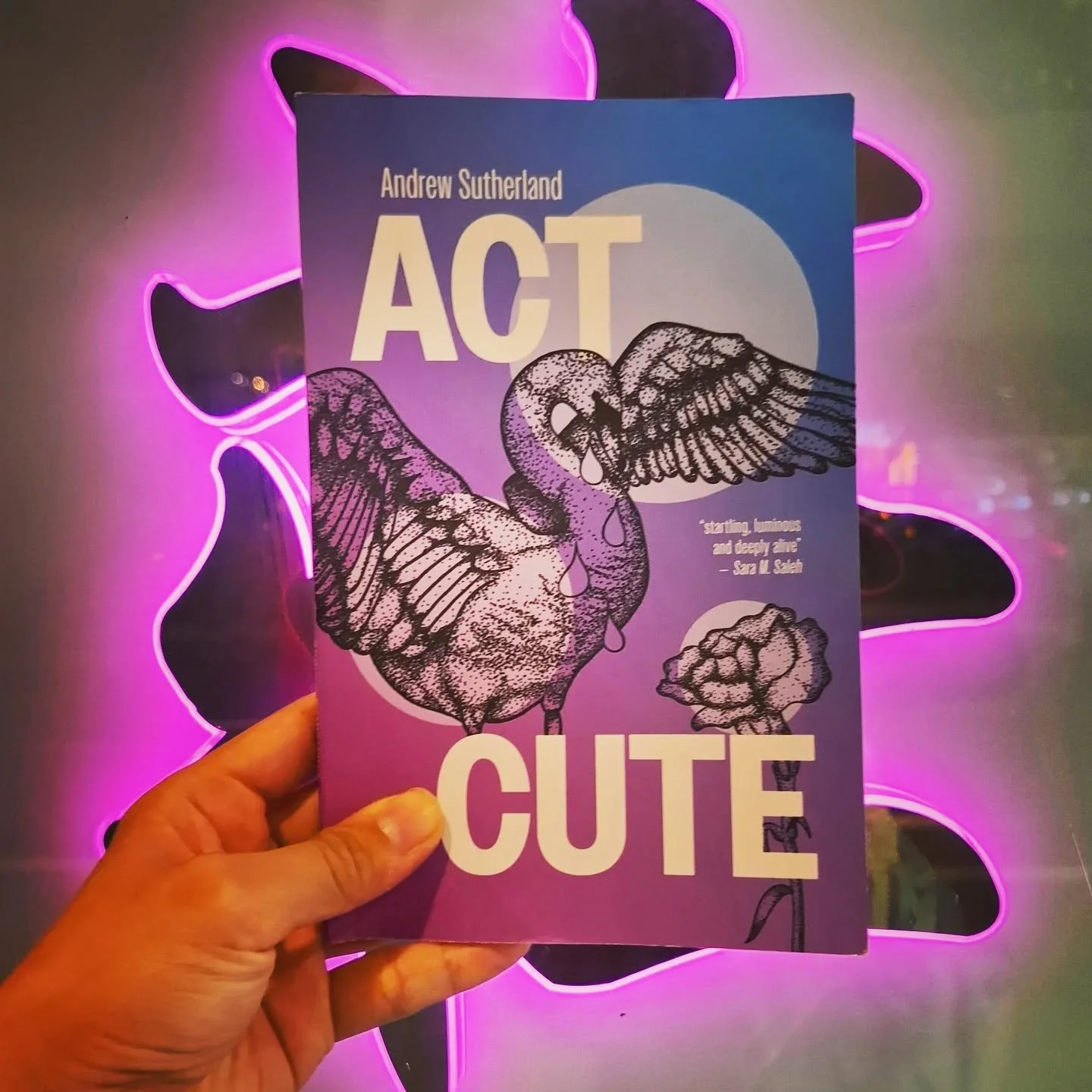



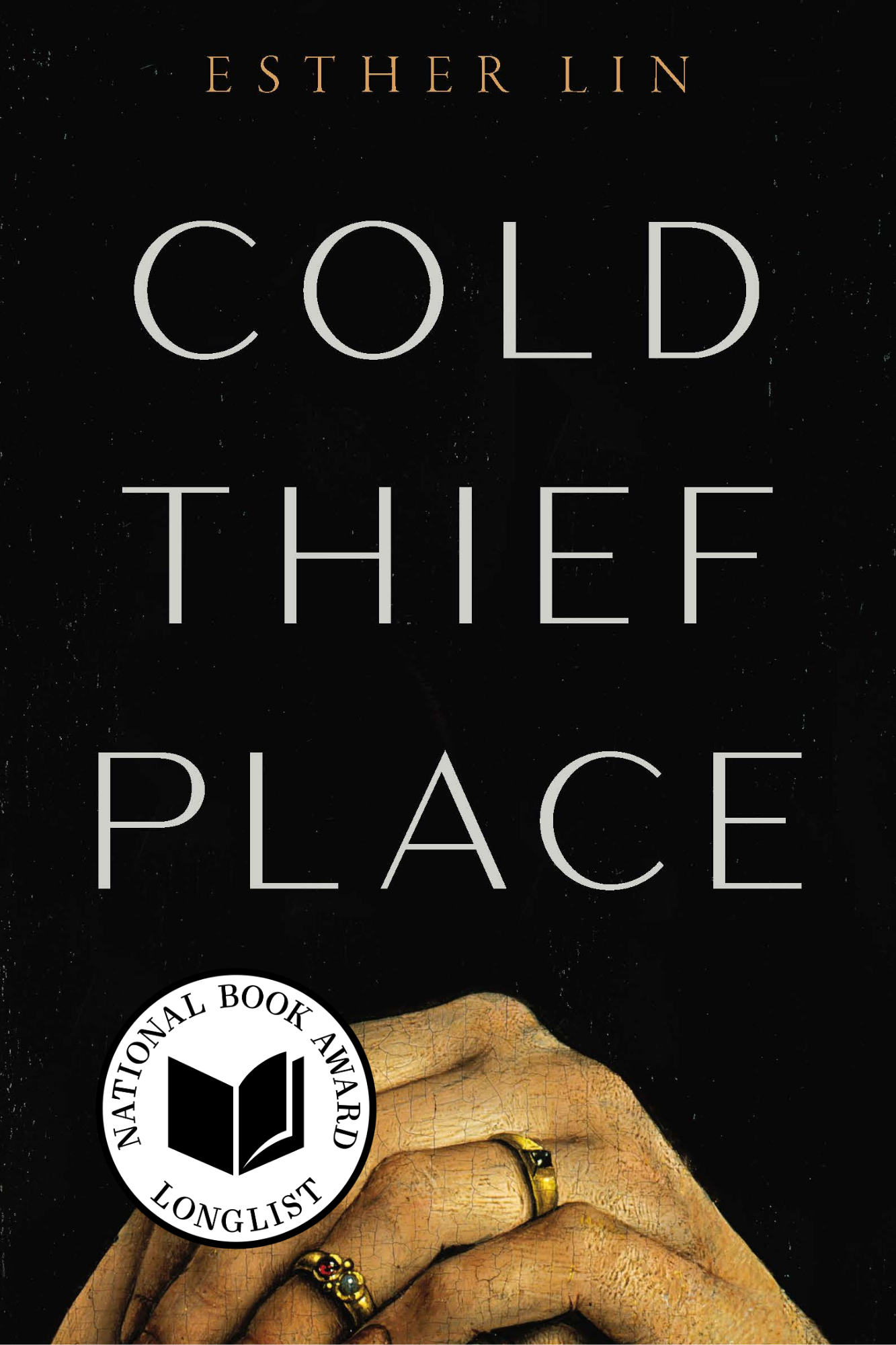
This Christmas season, Ng Yi-Sheng takes us to the Middle East.